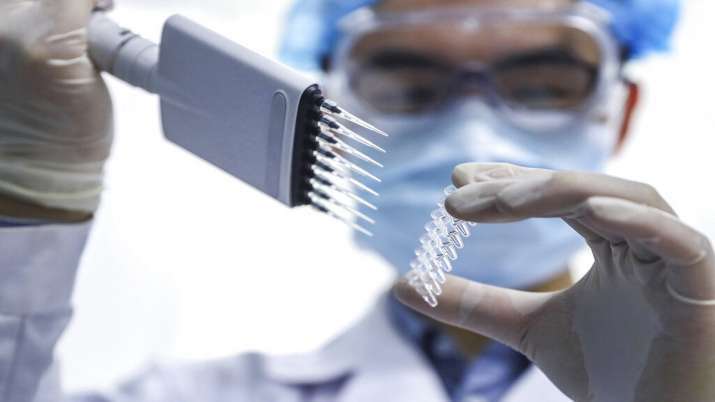Oxford University's coronavirus vaccine trial team isand theas early as September, David Carpenter, Chairman of the Berkshire Research Ethics Committee, which approved the Oxford trial has said. This comes as a big breakthrough in the fight against coronavirus. 'The Lancet' medical journal has confirmed that it would be publishing early-stage human trial data from the Oxford team on Monday.
"Nobody can put final dates... things might go wrong but the reality is that by working with a big pharma company, that vaccine could be fairly widely available around September and that is the sort of target they are working on," David Carpenter said.
The vaccine development, by the university’s Jenner Institute, is being supported by the UK government and AstraZeneca, which will support the production phase. Oxford's potential Coronavirus Vaccine has been licensed to AstraZeneca.
Oxford's extremely promising breakthrough on coronavirus vaccine
Researchers at the University of Oxford believe they may have a breakthrough in their search for a COVID-19 vaccine after the team discovered that the jab could provide "double protection" against the deadly coronavirus following early-stage human trials, according to media reports in the UK.
Blood samples taken from a group of UK volunteers given a dose of the vaccine showed that it stimulated the body to produce both antibodies and “killer T-cells”, a senior source from the trial was quoted by ‘The Daily Telegraph’ as saying.
The discovery is promising because separate studies have suggested that antibodies may fade away within months while T-cells can stay in circulation for years.
However, the source cautioned that the results, while "extremely promising", did not yet prove that the Oxford vaccine provides long-lasting immunity against the deadly virus.
"I can tell you that we now know the Oxford vaccine covers both bases – it produces both a T cell and an antibody response. It’s the combination of these two that will hopefully keep people safe. So far, so good. It’s an important moment. But we still have a long way to go," the source said.
Another source close to the team described the presence of both antibodies and T-cells as a "double defence" against COVID-19.
The pharmaceutical company said last month that phase one trials were due to finish and a phase three trial had begun which will see the vaccine given to thousands of people so it can be tested for efficacy and safety.
"The COVID-19 vaccine trial team have been working hard on assessing the safety and immunogenicity of ChAdOx1 nCoV-19, and preparing to assess vaccine efficacy," Sarah Gilbert, professor of vaccinology at the university’s Jenner Institute who is leading the research, had said back in May.
What Oxford University's COVID-19 vaccine is based on
The vaccine, named ChAdOx1 nCoV-19, is based on a weakened version of the common cold that causes infections in chimpanzees. It also contains the genetic material of the spike protein of SARS-CoV-2 – the strain of coronavirus that causes the COVID-19 illness.
The Oxford University vaccine is one of more than 100 in development as the novel coronavirus continues to spread – infecting more than 13 million people and killing at least 582,000 worldwide.
ALSO READ | India becomes third country in the world to record 1 million COVID-19 cases
ALSO READ | India second after United States in carring out maximum coronavirus tests, says White House

Justasentientwall on July 19th, 2020 at 20:19 UTC »
Quick question - if phase-3 trials are complete in September, and the vaccine is announced to provide protection against COVID, when can I, as a non healthcare worker who's not high risk to the virus, expect to get vaccinated?
MookieT on July 19th, 2020 at 18:12 UTC »
I've never wanted someone to be so right about something in my entire life.
WackyArmInflatable on July 19th, 2020 at 17:29 UTC »
I really hope so. I know if the phase III trials successfully conclude, they can start ramping up production in Sept. I think realistically most people wouldn't be able to get it until Oct-Nov. at the earliest. But If we could have a viable vaccine (even if it only offers temporary protection, or just makes catching it less severe) before the new year. That would be world changing.
Edit: I understand the vaccine is already being produced. I meant more that once (hopefully) it is successful, it can be all hands on deck to get it out to the world. I no good with words.